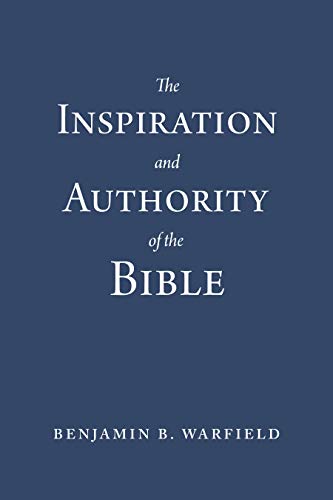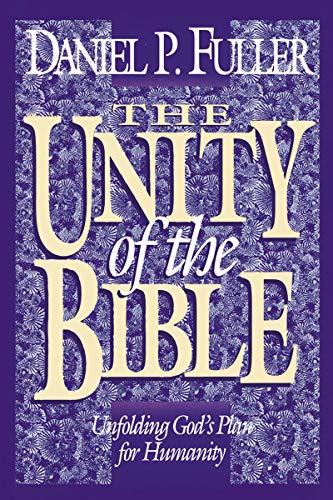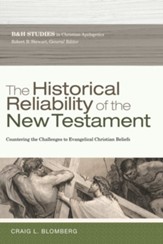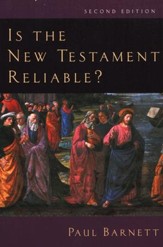Quotes about Bible-Inerrancy
Can God reveal Himself to humanity? And, to be more specific, can He reveal himself in language, the specifics of which become normative for Christian faith and action? With an inerrant Bible these things are possible. Without it, theology inevitably enters a wasteland of human speculation. The church, which needs a sure Word of God, flounders. Without an inerrant revelation, theology is not only adrift, it is meaningless. Having repudiated its right to speak on the basis of Scripture, it forfeits its right to speak on any other issue as well.
James Montgomery BoiceTaken from “Foundations of the Christian Faith-Book I” by James Montgomery Boice, page 72. (c)1986 InterVarsity Christian Fellowship of the USA, Revised edition. Used by permission of InterVarsity Press, P.O. Box 1400, Downers Grove, IL 60515. www.ivpress.com http://www.gospelcom.net/cgi-ivpress/book.pl/code=991. Get this book!
Inerrancy allows for variety in style.
Inerrancy allows for variety in details in explaining the same event.
Inerrancy does not demand verbatim reporting of events.
Inerrancy allows for departure from standard forms of grammar.
Inerrancy allows for problem passages.
Inerrancy demands the account does not teach error or contradiction.
Inerrancy means that when all the facts are known, the Scriptures in their original autographs and properly interpreted will be shown to be wholly true in everything they affirm, whether that has to do with doctrine or morality or with the social, physical or life sciences.
The Meaning of Inerrancy,in Inerrancy, ed. Norman Geisler, Zondervan, www.zondervan.com, 1980, p. 294.
I believe in the inerrancy of Scripture, but I do not believe in the inerrancy of my interpretation of Scripture. Therefore, I am willing to stand corrected about my convictions if those corrections are shown to be a more accurate interpretation of the revelation of God in the Bible.
Jesus is Absolute Truth by Ajith Fernando taken from The Supremacy of Christ by Ajith Fernando, copyright 1995, Crossway Books, a division of Good News Publishers, Wheaton Illinois 60187, www.crosswaybooks.org, p. 34.
God’s words are not simply true in the sense that they conform to some standard of truthfulness outside of God. Rather, they are truth itself; they are the final standard and definition of truth.
Systematic Theology, Zondervan, 1994, p. 196. Used by Permission.
Get this book!
Even with so vast a work as the Holy Scriptures it is impossible to provide solutions to all the problems. In some cases the solution awaits the findings of the archaeologist’s spade; in another case it awaits the linguist’s research; in other cases the solution may never be discovered for other reasons. The solution to some problems must be held in abeyance. The answer, however, is never to suggest there are contradictions or errors in Scripture. If the Scriptures are God-breathed they are entirely without error.
The Bible: The Inerrant Word of God, www.bible.org, Copyright ©1996-2005, All rights reserved.
Because the Bible is God’s inerrant, authoritative, sufficient, and sole source of His divine word of truth, every other truth rests on that truth. It is not that the inerrancy of Scripture is a more important truth than, say, the deity of Christ or the Trinity. But it is only from the truth of Scripture that we can know all other truths. God’s word of truth in Scripture is the source and measure not only of all spiritual and moral truth but of all truth of any sort on which it speaks.
The Bible is innocent of error until proven guilty. Based on the Bible’s self-claim of inerrancy and the mass of evidence for inerrancy, we can assume there are good explanations for apparent contradictions. The burden of proof is on the critic. There are at least plausible explanations for all so-called discrepancies (Sid Lidke).
Biblical veracity and biblical authority are bound up together. Only truth can have final authority to determine belief and behavior, and Scripture cannot have such authority further than it is true. A factually and theologically trustworthy Bible could still impress us as a presentation of religious experience and expertise, but clearly, if we cannot affirm its total truthfulness, we cannot claim that it is all God’s testimony and teaching, given to control our convictions and conduct.
Taken from: Truth and Power © 1999, p. 134, InterVarsity Christian Fellowship/USA. Used with permission of InterVarsity Press, P.O. Box 1400, Downers Grove, IL 60515. www.ivpress.com.
Many of us would agree with Peter when he says that parts of Paul’s letters are hard to understand! And there are difficulties and apparent discrepancies in other parts of the Bible too. On this matter of discrepancies, I remember reading something written by an old seventeenth-century Puritan named William Bridge. He said that harping on discrepancies shows a very bad heart, adding: “For a godly man, it should be as it was with Moses. When a godly man sees the Bible and secular data apparently at odds, well, he does as Moses did when he saw an Egyptian fighting an Israelite: he kills the Egyptian. He discounts the secular testimony, knowing God’s Word to be true. But when he sees an apparent inconsistency between two passages of Scripture, he does as Moses did when he found two Israelites quarreling: he tries to reconcile them. He says, ‘Aha, these are brethren, I must make peace between them.’ And that’s what the godly man does.”
Only in the context of a firm belief in Scripture’s inerrancy has expository preaching thrived.
Being wholly and verbally God-given, Scripture is without error or fault in all its teaching, no less in what it states about God’s acts in creation, about the events of world history, and about its own literary origins under God, than in its witness to God’s saving grace in individual lives.
The authority of Scripture is inescapably impaired if this total divine inerrancy is in any way limited or disregarded, or made relative to a view of truth contrary to the Bible’s own; and such lapses bring serious loss to both the individual and the church.
We affirm that a confession of the full authority, infallibility, and inerrancy of Scripture is vital to a sound understanding of the whole of the Christian faith. We further affirm that such confession should lead to increasing conformity to the image of Christ. We deny that such confession is necessary for salvation. However, we further deny that inerrancy can be rejected without grave consequences, both to the individual and to the church.
The Chicago Statement on Biblical Inerrancy, Articles of Affirmation and Denial, Article XIX.
The Bible stands or falls as a whole. If a major newspaper were routinely discovered to contain errors, it would be quickly discredited. It would make no difference to say, “All the errors are confined to page three.” For a paper to be reliable in any of its parts, it must be factual throughout. In the same way, if the Bible is inaccurate when it speaks of geology, why should its theology be trusted? It is either a trustworthy document, or it is not.
Why is it important to believe in biblical inerrancy? www.GotQuestions.org. Used by Permission.
We believe that the God who created the universe is capable of writing a book. And the God who is perfect is capable of writing a perfect book. The issue is not simply “Does the Bible have a mistake?” but “Can God make a mistake?” If the Bible contains factual errors, then God is not omniscient and is capable of making errors Himself. If the Bible contains misinformation, then God is not truthful but is instead a liar. If the Bible contains contradictions, then God is the author of confusion. In other words, if biblical inerrancy is not true, then God is not God.
Why is it important to believe in biblical inerrancy? www.GotQuestions.org. Used by Permission.
The Bible is our only rule for faith and practice. If it is not reliable, then on what do we base our beliefs? Jesus asks for our trust, and that includes trust in what He says in His Word (Jn. 6:67-69).
Why is it important to believe in biblical inerrancy? www.GotQuestions.org. Used by Permission.
We do not possess the original writings of any biblical author. But modern translations of the Bible are taken from manuscripts that were carefully, meticulously copied from these flawless originals. When we find the near-perfect agreement between these thousands of preserved manuscripts, despite their being copied and re-copied over hundreds of years and in a variety of countries and languages, we can rest assured that what we have today is a faithful representation of the actual words of God.
The Bible is God’s Special Revelation, Christian Communicators Worldwide, www.CCWtoday.org. Used by Permission.
By this word [inerrancy] we mean that the Scriptures possess the quality of freedom from error. They are exempt from the liability to mistake, incapable of error. In all their teachings they are in perfect accord with the truth.

















